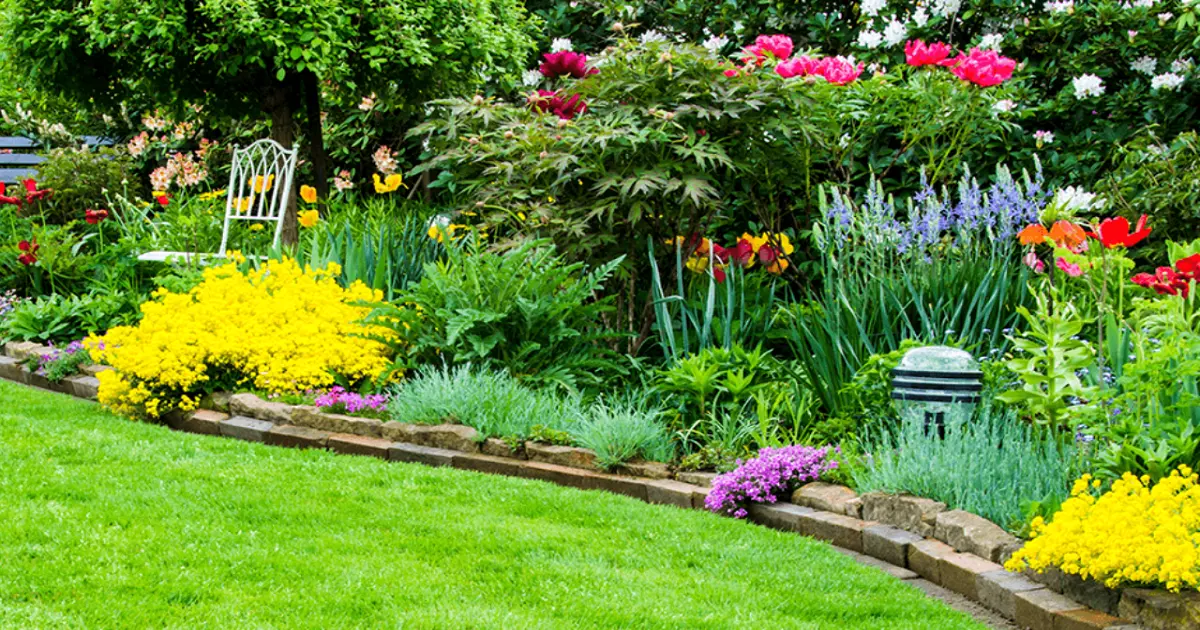Annual plants are plants that only live for one year. Moreover, they are different from plants that live for more than one year, called perennial plants. Annual plants start from seeds, then grow bigger, make flowers and seeds, and finally die. They do all of this in one year or less. This is how they live and make new plants. Furthermore, the meaning of annual plants is very interesting and useful for nature and people.
Understanding Annual Plants
Defining Annual Plants
Annual plants are plants that only live for one year. Moreover, they start from seeds, grow bigger, and make flowers. The flowers also make more seeds, and then the plant dies. All of this happens in one year or less. This is how the plant makes sure it can have many new plants in a short time.
Brief Life Cycle
An annual plant is a plant that only lives for one year. Moreover, it has different parts of its life that happen at different times. These are: growing from a seed, growing bigger and stronger, making flowers, getting pollen from other plants or animals, making new seeds, and dying. In addition, these parts of its life match the changes in the seasons, like spring, summer, fall, and winter. This also helps the plant live well in different kinds of weather.
Characteristics of Annual Plants
Rapid Growth and Reproduction
Annual plants are plants that only live for one year. Similarly, perennial plants are plants that live for more than one year. Annual plants grow very fast in comparison to perennial plants. This is because annual plants have to finish their whole life in one year, so they use a lot of their energy to grow and make seeds. In this way, they can make new plants for the next year.
High Seed Production
Annual plants are plants that live for only one year. Moreover, they have a special way of making sure their kind does not die out. They can also make a lot of seeds that can grow into new plants. In addition, even if the old plant dies because of bad weather or other problems, the seeds can still live and grow when things get better.
Benefits of Annual Plants
Erosion Control
Plants that grow and die in one year are very important for keeping the soil from washing away or blowing away. Furthermore, they grow fast and have many roots that hold the ground together. This also makes it harder for the wind and water to move the soil and cause erosion.
Crop Rotation and Soil Enrichment
In agriculture, annual plants are often used in crop rotation to improve soil fertility. Plants like legumes fix nitrogen in the soil, enriching it for subsequent crops.
Continuous Bloom in Gardens
Gardeners love annual plants for their prolonged and vibrant bloom periods. This characteristic allows them to create ever-changing and visually appealing landscapes.
Cultivating Annual Plants
Selecting Suitable Varieties
When cultivating annual plants, it’s essential to choose varieties that are well-suited to the local climate and growing conditions. This ensures a higher chance of success and vibrant growth.
Soil Preparation and Planting
Preparing the soil is a crucial step in cultivating annuals. Properly tilled and enriched soil provides the ideal environment for seeds to germinate and plants to thrive.
Maintenance and Care Tips
Annual plants require regular watering, fertilizing, and pest control. Pruning and deadheading spent flowers can also encourage continuous blooming.
Annual Plants in Agriculture
Economic Importance
Annual plants play a significant role in global agriculture. Many staple food crops, such as wheat, rice, and corn, are annuals that feed billions of people worldwide.
Food Crops and Seasonal Planting
Farmers strategically plant annual crops to align with the local growing season. This ensures a bountiful harvest and a stable food supply.
Annual Plants vs. Perennials
Contrasting Life Cycles
The distinction between annual and perennial plants lies in their life cycles. Perennials live for several years, while annuals complete their life cycle in one year.
Practical Applications
Annual plants are plants that only live for one year. Moreover, they have some special things that make them useful for different things. They can also make gardens look nice with their different colors every season. In addition, they can help the soil stay healthy and not get washed away.
Annual Plants in Ecosystems
Biodiversity and Succession
Annual plants contribute to ecosystem diversity and succession. They often appear in disturbed areas, helping to stabilize the soil and create conditions for other plants to establish.
Restoration and Conservation
Some people who care about nature and the land also use annual plants to help fix places that are hurt by humans or disasters. Moreover, these plants can make the land better for other plants that belong there.
Challenges in Annual Plant Cultivation
Vulnerability to Weather Fluctuations
Annual plants are plants that only live for one year. Moreover, they can’t handle big changes in the weather that happen suddenly. This can also make it hard for them to grow and make seeds. They need good weather to live and make new plants.
Pest and Disease Management
Pests and diseases can quickly affect annual plants due to their rapid growth. Integrated pest management strategies are crucial for protecting these plants.
Popular Annual Plants
Marigolds
Marigolds are flowers that have bright colors like orange and yellow. Moreover, many people like to grow them in their gardens. They can also keep away some bugs that might harm other plants.
Petunias
Petunias are flowers that have a shape like a trumpet. Moreover, they have many colors and are very pretty. They also like to grow in places where there is a lot of sun. They are good for putting in baskets that hang from the ceiling or along the edges of your garden.
Zinnias
Zinnias are flowers that look like daisies. Moreover, they have many colors and are easy to grow. They also make butterflies come to your garden. Many people like to grow zinnias because they are beautiful and fun.
Exploring Annual Plants in Gardens
Container Gardening
Even if you don’t have a lot of space for gardening, you can still enjoy growing annual plants. Firstly, annual plants are plants that live for one year and then die. Secondly, they have beautiful flowers that come in many colors and shapes. Thirdly, you can grow them in containers like pots, boxes, or baskets. Moreover, you can place these containers on places like your porch, balcony, or window sill. This way, you can have a lovely garden even in a small space. In conclusion, annual plants are perfect for container gardening.
Bedding Displays
Annual plants are plants that complete their life cycle in one year. First, they are wonderful for adding life and color to your garden beds. Secondly, they have many different shapes, sizes, and colors of flowers that can brighten up any space. Thirdly, you can mix and match them to create beautiful patterns and contrasts. Finally, annual plants are a great way to enjoy nature’s beauty.
The Role of Annual Plants in Biodiversity
- Ecological Diversity: Annuals contribute to varied habitats and niche availability.
- Quick Colonizers: They pioneer disturbed areas, aiding ecosystem recovery.
Maximizing the Impact of Annual Plants
- Companion Planting: Pairing annuals strategically for pest control and growth enhancement
- Seasonal Arrangements: Using annuals to create themed garden displays year-round
If you want to know about Murphy Beds to improve your Room, let’s delve into this article.
Conclusion:
Some plants live for only one year, but they show us how amazing and flexible nature can be. In addition, they grow quickly, produce beautiful flowers, and help other living things survive. Furthermore, many people enjoy growing them in their gardens or using them for food. These plants are called annuals, and they make our world more colorful and rich.
FAQs About Annual Plants:
Can annual plants become perennials?
No, by definition, annual plants complete their life cycle within a single year and cannot become perennials.
Are all food crops annual plants?
While many staple food crops are annuals, some, like fruit trees, fall into the perennial category.
Can I save seeds from annual plants for the next year?
Yes, you can save seeds from annual plants, but their germination rates might decrease over time.
Do annual plants require less maintenance than perennials?
Annual plants often require more maintenance due to their rapid growth and shorter life cycle.
Can I grow annual plants indoors?
Yes, many annual plants can thrive indoors if provided with adequate light and care.





